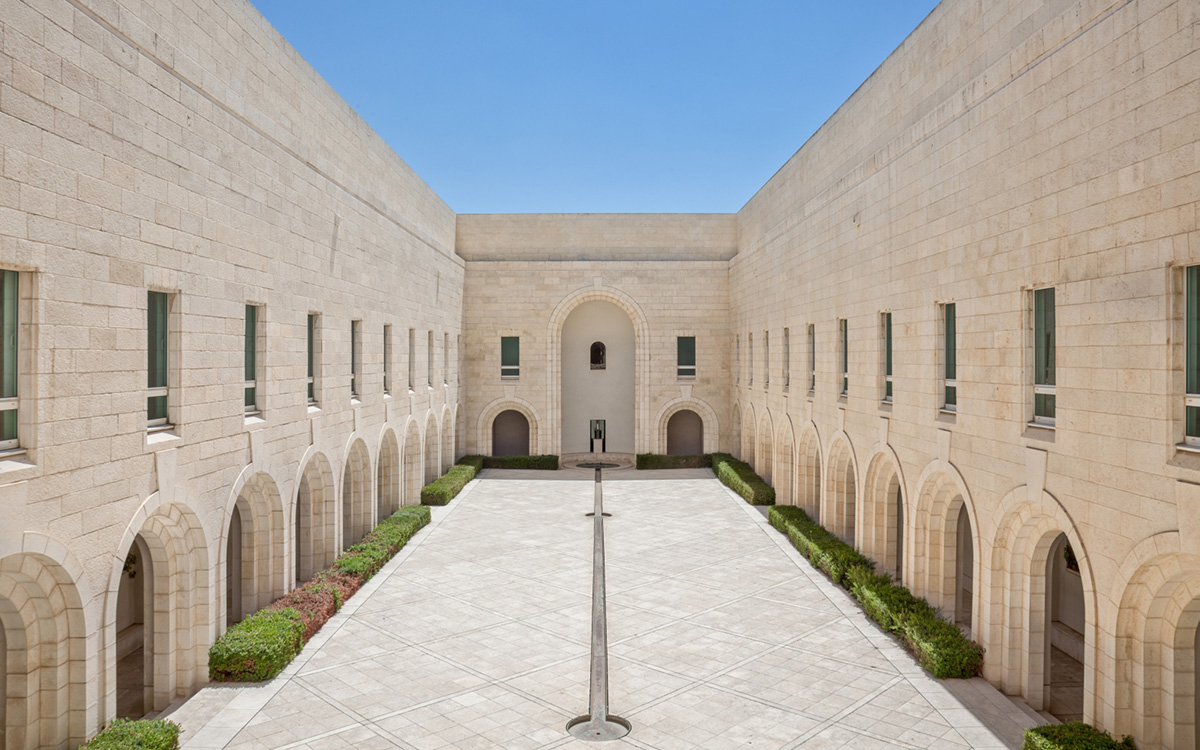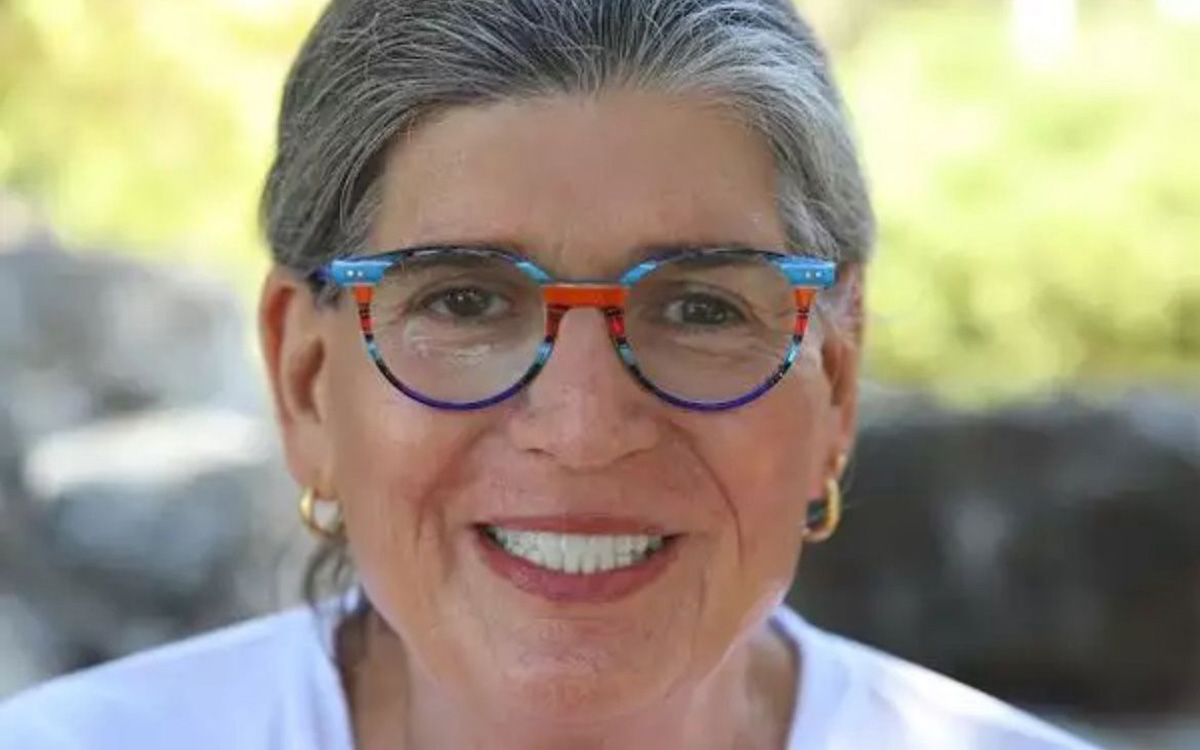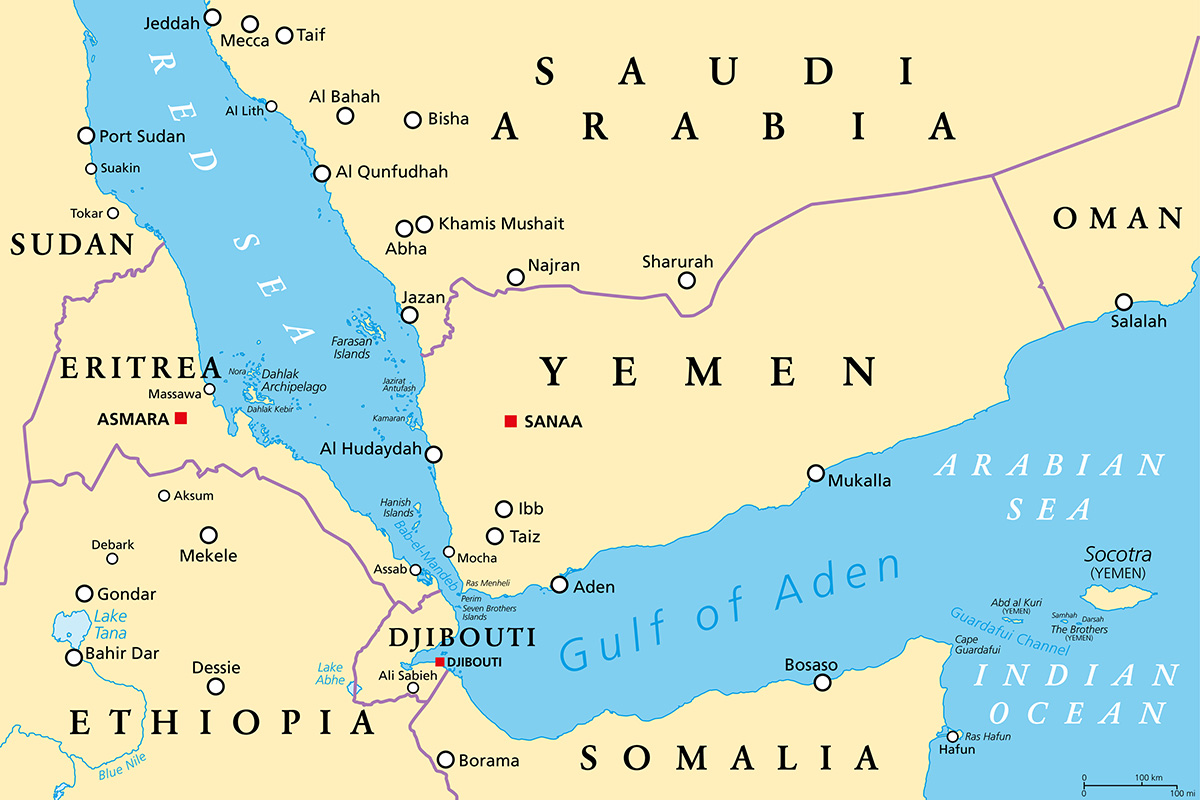Middle East
New Israeli government takes office
Activists’ concerns overshadow first gay Knesset speaker

WDG, the Washington Blade’s media partner in Israel, wrote this article.
Israeli Prime Minister Benjamin Netanyahu’s coalition government was sworn in on Thursday.
After a long and exhausting coalition negotiation in which the far-right parties blackmailed Netanyahu, they managed to insert into the coalition agreements a number of clauses that pose a clear danger to the continued promotion of the rights of the LGBTQ community in Israel, and even to the institutionalization of discrimination and its legalization.
The new government’s first goal in Israel is to weaken the judicial system and enact the superseding clause that will allow the Knesset to overturn Supreme Court decisions with a majority of 61 Knesset members.
Another law included in the coalition agreements is the Discrimination Law, according to which “in order to correct the distortion in the status quo that was recently made, the Law Prohibiting Discrimination in Products, Services and Entry to Entertainment Places and Public Places will be amended, so that the possibility of holding cultural events or studies for religious and ultra-Orthodox people, while taking into account their religious beliefs and needs, will be amended — including gender segregation. Under these conditions, segregation will not be considered prohibited discrimination.”
Even before the swearing in of the government, the designated minister Orit Struck explained that according to the new law, a doctor could refuse to give his patients treatments that contradict his religious beliefs.
MK Simcha Rotman explained that businesses could refuse to commit “religious offenses” in their area, and when asked if hotels could refuse to host a gay couple, he replied: Yes.
The new list of ministers includes 36 ministers, many of whom hold anti-LGBT opinions. But the two appointments appear to be particularly problematic for the LGBTQ community.
The first is the appointment of Itamar Ben Gvir as National Security Minister, whose approval includes changes to the Police Order Law, also known as the “Ben Gvir law” in the framework of which additional powers were transferred to the Internal Security Minister and the labeling of police policy, which includes, among other things, the definition of priorities, work plans and powers in matters of the budget. This structural change in the police command gives Gvir the authority and the possibility to act harshly against future protests and even prevent them.
The second appointment is that of Amichai Shikli as Social Equality Minister.
Shikli, an MK from the Likud party, is among those responsible for the overthrow of the previous government of Naftali Bennett, spoke out against the LGBTQ community many times, and is currently in charge of the Social Equality Ministry under which the LGBTQ activity in the local authorities was budgeted, which is now in danger.
Amid all the homophobia, the appointment of MK Amir Ohana of the Likud who was elected Knesset speaker, and became the first LGBT MK to hold this position, which is considered one of the five symbols of rule, stands out.
In his ceremonial speech in the Knesset, Ohana referred to the new coalition member’s statements of the members of the new coalition:
“This Knesset is the home of all the citizens of Israel. It is the true fortress of human rights and individual freedom,” he said. “Along with things we agree on, we hear very controversial things here. Really outrageous. But this is the place to discuss the most painful and sensitive issues and make decisions. This — and no other.”
During Ohana’s first speech as Knesset speaker, there was embarrassment when the leaders of the ultra-Orthodox parties bowed their heads and covered their faces when Ohana acknowledged his spouse and his children who were sitting in the hall.
“Alon is with me … [he is] my anchor, the wise and good, and our beloved children Ella and David,” said Ohana. “This Knesset, led by this speaker, will not harm them or any child or family — P-E-R-I-O-D. And if there is a boy or girl watching me here today, know that it doesn’t matter who you are or where you’re from, you can get anywhere you want.”
The LGBTQ community marked the government’s inauguration with demonstrations and protests, along with dozens of civil society organizations.
Hundreds of “Love Will Win” signs in the colors of Pride were hung in dozens of local authorities across the country in the morning by the Aguda’s “local Pride” activists. Members of the community from north to south came out in the middle of the night and hung the signs in their homes in Ariel, Ashkelon, Beer Sheva, Gedera, Givat Shmuel, Petah Tikva, Haifa, Netanya, Pardes Hana Karkur, Jordan Valley, Tel Aviv-Jaffa, Rehovot and Or Yehuda.
At 10:30 a.m. in front of the Knesset, the Pride flags protest joined dozens of civil society organizations from all ends of the political spectrum and the hundreds of demonstrators who demonstrated in front of the Knesset. The demonstrators waved Pride flags and signs against the discrimination laws included in the coalition agreements.
In the evening, LGBTQ organizations held a demonstration in front of the Government Tower in Tel Aviv.
Around 3,000 demonstrators gathered in square and listened to the protest speeches of the representatives of the LGBTQ organizations. Later in the evening they went down to the road and blocked Ayalon Hhighway, with the police accompanying them and allowing them to carry out the blockades.
“We have proven to the whole country that we know and know how to fight for our lives when necessary,” said Hila Peer, chairwoman of the Aguda. “And we are not alone. We are with the vast majority of Israeli citizens, most of the economy, most of the local authorities. With us are the families, the parents, the brothers and friends who stand by us. Don’t try us because our righteous and valuable struggle to be equal citizens only goes forward. It will not go back on our watch.”
The business community also joined the protest against the new government’s plans to harm minorities and discriminated populations. During the day, more and more companies and commercial entities responded to the call initiated by LGBTech and joined almost 300 companies that made public statements that they will not allow discrimination and will refuse to provide services to discriminatory entities.
“We are thankful and grateful to the companies and employers who rallied in recent days and called loudly for the right to equality, acceptance and security.” LGBTech CEO Sivan Kaniel. “The Israeli economy is committed and will continue to be committed to all its workers and employees, and we call on female managers and other managers to call out loudly against the racist voices, the waterfalls that are heard today. Today these voices are directed towards the LGBTQ community, tomorrow they are other communities. This is a moral and ethical test hour for all of us, Israelis, regarding the character of the country in which we live. We must raise our voices today, for the right of all of us to earn a living, and to live safely and peacefully.”
Middle East
Israeli Supreme Court rules country must allow two mothers on child’s birth certificate
LGBTQ activists praised the ruling

Supreme Court judges on Thursday unanimously ruled that the Population Authority must register female couples as mothers on the birth certificates of their children they have together.
The decision was made following a petition submitted by nine female couples, mothers of children born through anonymous sperm donation. The panel of judges, headed by Supreme Court President Uzi Fogelman and Judges Ruth Ronen and Alex Stein, rejected the Population Authority’s claim that the birth certificate reflects only biological parentage and ruled that both the birth mother and her partner must be registered as the child’s parent.
“The exclusion of the non-biological parent from the birth certificate means a preference for the position of the biological parent over parenting based on other parents,” Fogelman wrote in the ruling. “In terms of substantive law, the parenting of both parents — the biological parent and the non-biological parent — is equal and it includes the same basket of parental rights and duties. I do not believe that when at the level of substantive law there is equality between the parents, there is room to distinguish between them at the level of registration in the birth certificate.”
Fogelman also referred to the interpretation that may be given to the lack of registration on the birth certificate as “an offensive message according to which we are dealing with relationships that are different in nature and essence: while biological parentage is ‘real’ parentage, non-biological parentage is inferior and suspect parentage, a kind of ‘conditional’ parentage.”
The ruling does not apply to male couples because the petition dealt with couples who conceived with the help of anonymous sperm donation.
The ruling was issued as part of a petition submitted around eight years ago by nine female couples, who claimed that not registering the non-biological mother on the birth certificate deprives the child of rights that include acquiring foreign citizenship and petitioned the Interior Ministry and the Population and Immigration Authority to issue their children amended birth certificates that include the names of both mothers.
The Population Authority refused the couples’ request on the grounds that the birth certificate is a document that reflects the biological parentage at the time of birth, and is not updated with the passage of time. The petitioners claimed that the Population Authority’s policy violates the right to family life and the right to equality, since it discriminates against same-sex couples. And as evidence, they pointed out that when it comes to heterosexual couples, the Interior Ministry issues them corrected birth certificates — even in cases of adoption by the spouse of the biological mother or in the case where sperm donation is used for the birth of the child.
Fogelman accepted the respondents’ position according to which the birth certificate was intended to document the identity of the child at the initial point in time of his life. Alongside this, he rejected the respondents’ position that the birth certificate was intended to reflect biological parentage.
“A birth certificate is one of the most important documents a person has. It confers a basket of rights and is also used for the purpose of regulating citizenship in foreign countries,” said attorneys Daniela Ya’akobi, Hagai Kalai and Achinoam Orbach, who represented the petitioners. “For all these years, the state has insisted on denying children of two mothers a birth certificate that reflects the reality of their lives. The judgment of the High Court of Justice put an end to ugly and unnecessary discrimination, which has no purpose and never had. It is a great victory, but no man needs or wants to win his country. The time has come for the state, on its own initiative, to allow full equality of rights for all its citizens, including LGBT people.”
Aguda Chair Hila Peer responded to the ruling.
“This is a historic day when our families are equal,” she said. “For years the Interior Ministry has refused to register proud mothers on the birth certificate and now, thanks to the High Court of Justice, we are taking a significant step towards equality.”
Middle East
Sheila Weinberg becomes Israel’s first transgender council member
Former teacher elected in Kiryat Tivon on Feb. 27

WDG is the Washington Blade’s media partner in Israel. WDG published this article on their website.
Sheila Weinberg on Feb. 27 wrote another chapter in LGBTQ history in Israel when she was elected as the country’s first transgender council member.
Weinberg, the 65-year-old chair of the “Transiot Israel” association and a former teacher, was elected to the Kiryat Tivon Local Council after her “More to Tivon” list won 37.7 percent of the votes.
In the past she was a member of the LGBTQ Committee in Kiryat Tivon and in the last year she was active in the protest against the proposed judicial reforms. Weinberg has two children and a granddaughter. She started the process of affirming her gender about five years ago when she was 60 years old.
“Many people in Kiryat Tivon knew exactly who I was and about my past. It didn’t bother. It seems to me that in certain places it was helpful,” Weinberg told WDG. “The residents of Tivon decided clearly in favor of a liberal, pluralistic and democratic Tivon. I have been a member of Meretz for many years and in these elections we joined a single list with ‘Yesh Atid’ and ‘Our Tivon’ and ‘Hoze Hadash’ (‘New Contract’), a list whose prominent values are equality among all. On the list were the women who founded the LGBT Committee in Tivon that operates with full vigor.”
Despite the historic title as the first trans council member in Israel, Weinberg is not content with just being active in the issues of the LGBTQ community, and aims (to become involved with) the education portfolio in her locality.
“I intend to use this branding to operate in Tivon in two main areas: Education and the LGBT community. Naturally, I see myself as someone who has a well-founded view of education in Tivon and I would be happy to be incharge of the education in Tivon, alongside the LGBT community. I have been teaching all my life. I taught for 35 years in several places, including the University of Haifa, and since the war started I have also been replacing a teacher who went into the reserves voluntarily.
Furthermore, I think I got my foot in the door for trans girls and trans boys. I will of course also continue to act as the chairman of ‘Transiot Israel’ and at the same time promote the needs of our community, which in the Haifa and Tivon area suffers from a lack of people.
I think I can speak for girls whose life path was less paved than mine. For those girls and boys who were thrown out on the street, out of school, who suffer physical and verbal violence, who are discriminated against economically and socially. And most of all, I would love to hear from my friends in the community and my friends there what the priorities are, not necessarily in Tivon but in Tel Aviv and other places.”
Other candidates from the LGBTQ community won in other municipalities in Israel.
In Tel Aviv-Yafo, Chen Arieli and Moti Reif entered the council for another term, as well as Reut Nagar and Shahar Levy. Assaf Weiss will serve as a council member in Ramat Gan, lawyer Daniela Jacobi in the Ramat Hasharon Council and Ella Kaufman will serve another term on the Kadima Council.
Middle East
Houthi court sentences 13 people to death for homosexuality in Yemen
Iran-backed rebel group controls large swaths of country

Reports indicate a court in Yemen has sentenced to death 13 people who had been charged with homosexuality.
Agence France-Presse reported the court in Ibb Governorate, which Iran-backed Houthi rebels control, announced the sentences on Feb. 4. The province’s main city is roughly 125 miles south of Sanaa, the rebel-held Yemeni capital.
The State Department’s 2022 human rights report notes Yemeni law criminalizes consensual same-sex sexual relations, “with the death penalty as a sanction under the country’s interpretation of Islamic law.” The report also indicates there were “no known executions of LGBTQI+ persons in recent years.”
The Houthis have been attacking commercial ships in the Red Sea since Hamas on Oct. 7, 2023, launched a surprise attack against southern Israel from the Gaza Strip. The U.S. and the U.K. last month launched air strikes against the Iran-backed rebel group.




















